The Gerald Coke Handel Collection at the Foundling Museum comprises over 12,000 items from the eighteenth century to the present, and is a major research resource for the study of Handel and his contemporaries. Handel was a major benefactor of the Foundling Hospital, a home for children founded in 1739 by Thomas Coram, which counted William Hogarth among its supporters. The Museum tells the story of the Hospital and also displays an art collection donated by artists from the eighteenth century to the present day. Handel gave benefit concerts for the Hospital, paid for the first organ in the Hospital Chapel, and composed the Foundling Hospital Anthem especially for his first fundraising concert there. His Foundling Hospital performances of Messiah brought his oratorio from relative obscurity to the central place it now occupies in British musical performances.
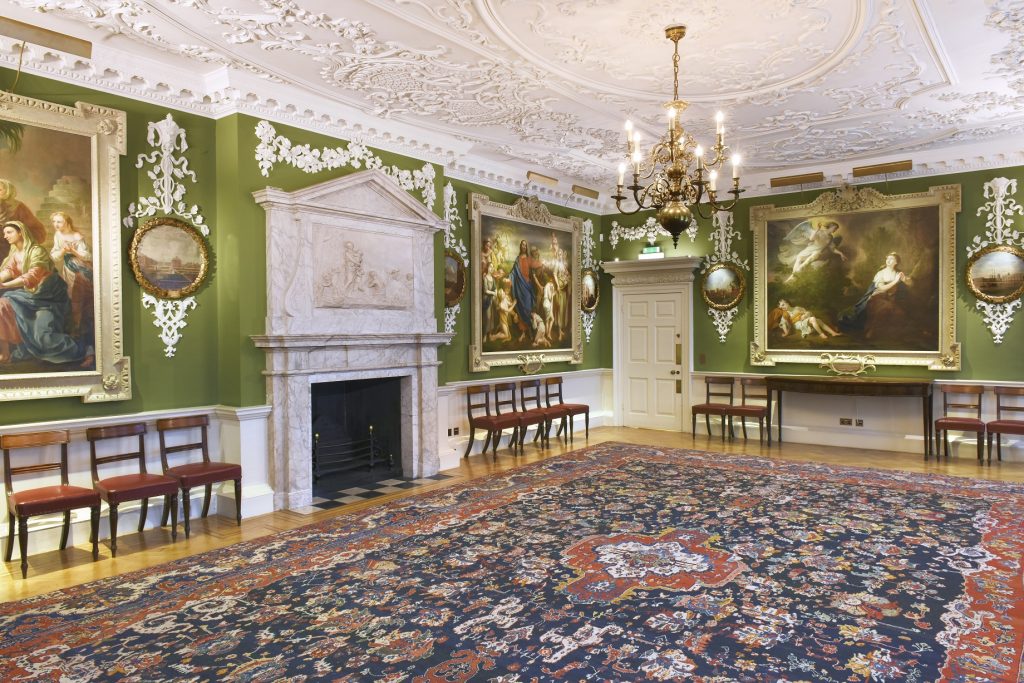
The Handel Collection includes manuscript and printed music and documents, books, journals, libretti, sound recordings, artworks and artefacts, and an important collection of performance ephemera relating to Handel and his circle, and to music printing and publishing in London in the eighteenth century. Handel’s singers, patrons, friends and working environments are well represented, making the collection a rich resource for eighteenth-century musical studies. There are periodicals and collected editions, together with modern scores and literature, and the large collection of ephemera comprises concert tickets, playbills, newspaper cuttings, programmes and advertisements from the eighteenth century to the present day.
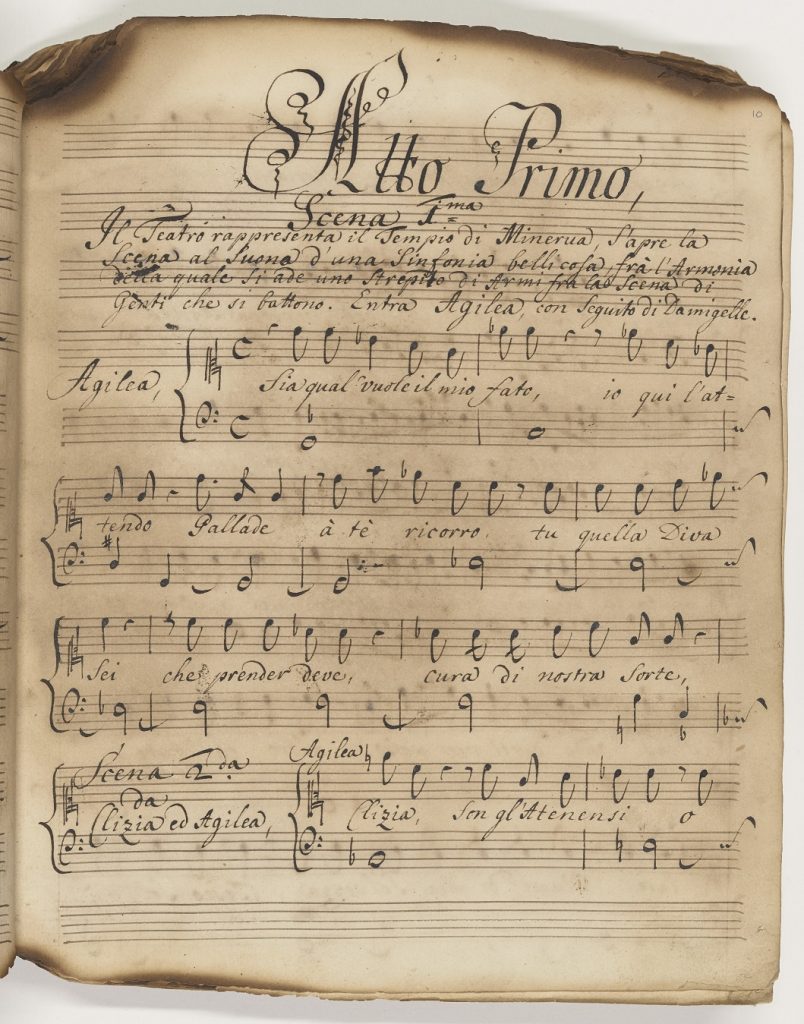
Manuscripts include autograph letters from Handel, his librettist Charles Jennens, and others, as well as the earliest surviving score of his opera Teseo and numerous contemporary manuscript scores, including a significant collection formerly belonging to the Earl of Shaftesbury. There are many items relating to the earliest performances of Handel’s most famous oratorio, the Messiah, including wordbooks for the first performance and the first published score of songs from the Messiah. A highlight of the collection is Handel’s autograph will; written in 1750, it was later supplemented by four codicils, including one dated 4 August 1757 which includes his bequest to the Foundling Hospital of ‘a fair copy of the Score and all Parts of my oratorio called The Messiah’; this score and the 28 performance parts are now in the library. A previously unpublished collection of letters from Jennens to the classical scholar Edward Holdsworth has now been included with full transcriptions in the online catalogue; these document Holdsworth’s travels across Europe on the Grand Tour, as well as including many references to Handel performances. There is also an unpublished manuscript account by the Frenchman Fougeroux describing his travels around England, which includes interesting details of everyday life and habits seen through the eyes of a foreign visitor.
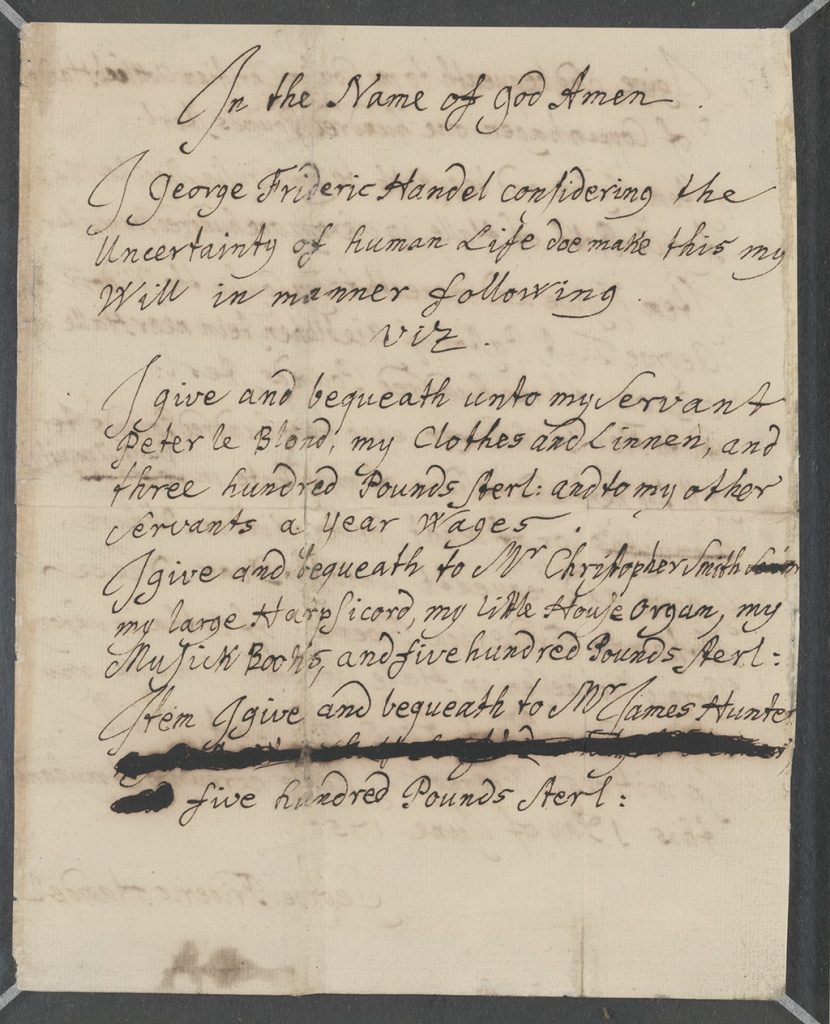
Major art works include oil paintings of Handel, Charles Jennens, the singers Richard Leveridge, Anna Maria Strada and John Beard, and Zoffany’s portrait of John Christopher Smith the younger. There are hundreds of prints and engravings of contemporary composers and performers, including watercolours by Rowlandson, as well as ceramic and bronze busts of Handel and a terracotta modello by Roubiliac for the monument to the composer in Westminster Abbey. Smaller items include a porcelain model of the singer Kitty Clive and numerous medals, tokens and memorabilia issued for various festivals from the eighteenth to the twentieth centuries.
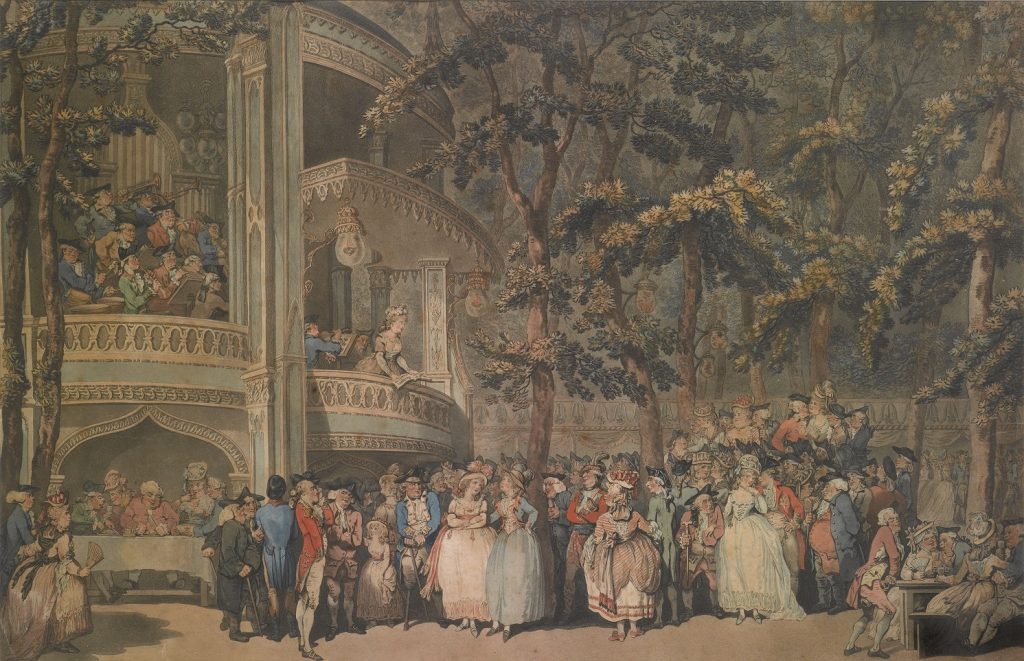
Gerald Coke was a meticulous collector and regarded every issue of a printed volume as distinct, allowing scholars to discover a wealth of detail about printing and publishing of music in the eighteenth century. Thus the collection has multiple issues of some editions, distinguished by perhaps as little as a single re-engraved plate, as well as copies annotated by significant former owners. There are many original book bindings among the volumes, from finely tooled covers to makeshift wrappers, and a wonderful collection of marbled boards on the bound volumes.
Gerald Coke (1907-1990) was a businessman who created his collection over sixty years. He also collected porcelain decorated in the studio of James Giles, and this collection is now in the Museum of Royal Worcester. Coke’s Handel collection was bequeathed to the State in lieu of tax by his widow in 1995, and formally allocated to the Foundling Museum in 2008. As well as the Collection itself, the bequest included an endowment which allows for further purchases or modern and antiquarian materials, and the Collection continues to grow. A reading room provides access to scholars, students and the public for research.
The online catalogue includes detailed lists of contents of anthologies as well as digitised images of most of the manuscripts, taken from microfilms, and digitised images of the artworks, playbills and some other material. As about half the regular users of the Collection live overseas, we have tried to include as much detail as possible in the records. Most of our concert programmes are included on the Concert Programmes Project database and most of our manuscripts are described in further detail with music incipits and scoring details on the international RISM database of music manuscripts (Répertoire International des Sources Musicales)
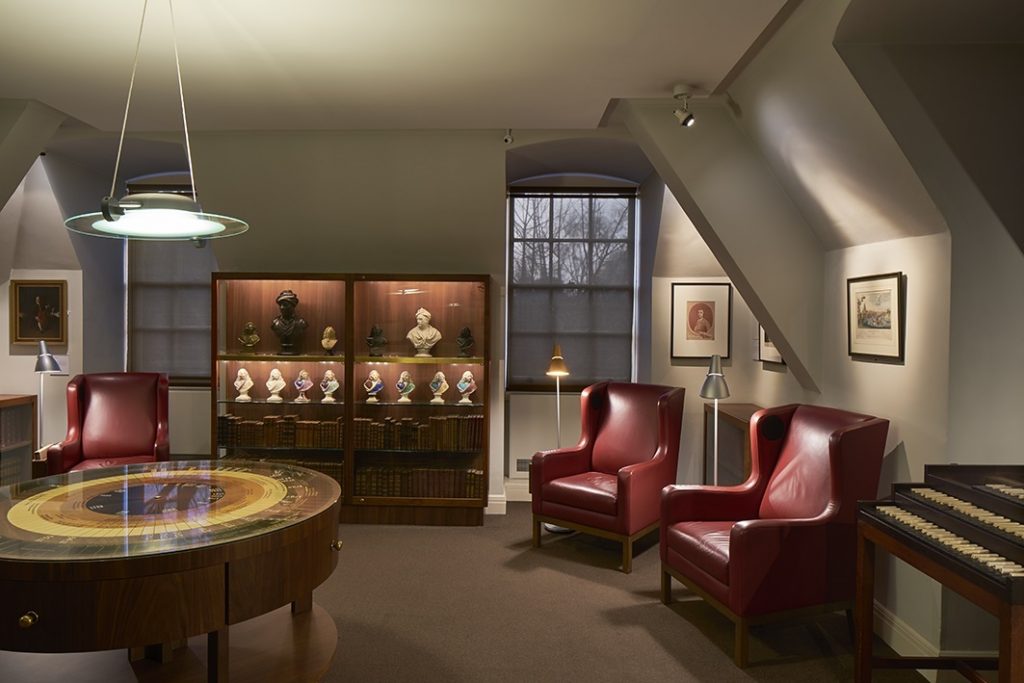
The Handel Gallery in the museum is open to the public during normal museum hours and displays a range of material from the Collection, as well as providing popular ‘musical chairs’ where visitors can sit in comfort and listen to hours of Handel’s music. The Gerald Coke Handel Collection reading room is normally open Wednesday – Friday for research by appointment. For all enquiries call +44 (0)20 7841 3606 or email handel@foundlingmuseum.org.uk. Visitors can also get in touch to request general or bespoke tours of the museum and/or the Handel Collection, and there are frequent concerts, talks and other events in the museum inspired by the museum’s stories of art, social history and music. For further details see the website www.foundlingmuseum.org.uk
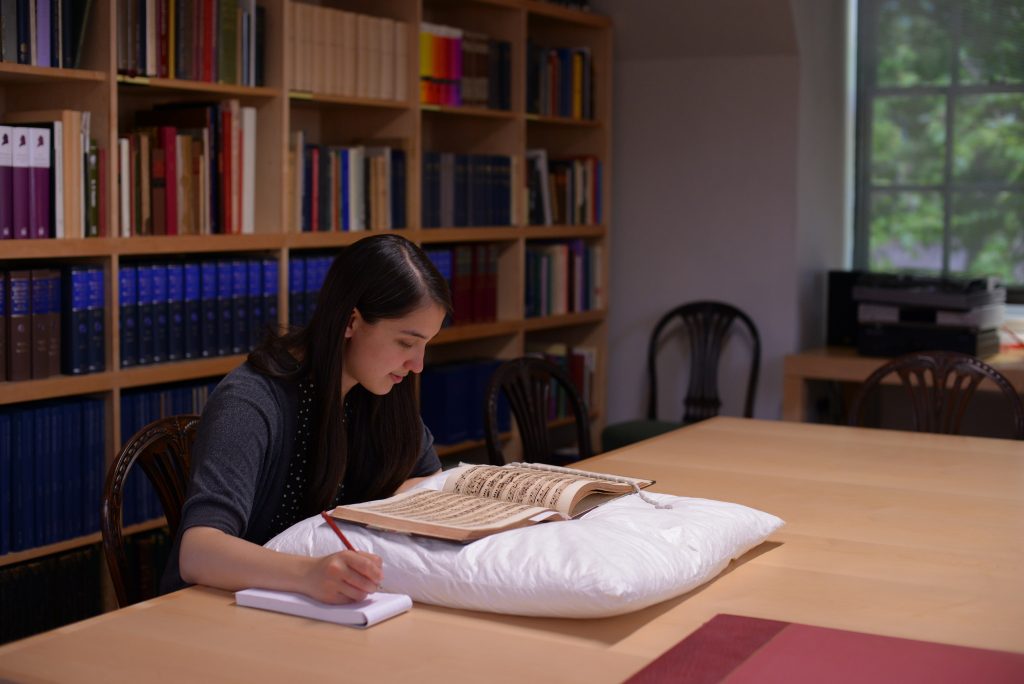
Katharine Hogg
Librarian


One reply on “The Gerald Coke Handel Collection at the Foundling Museum”
Just I woud like to say Thank you!